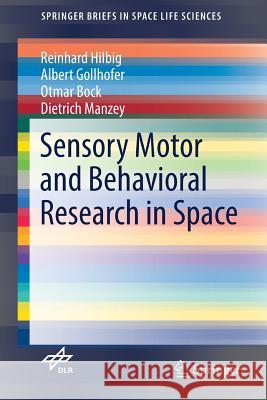Sensory Motor and Behavioral Research in Space » książka
topmenu
Sensory Motor and Behavioral Research in Space
ISBN-13: 9783319682006 / Angielski / Miękka / 2017 / 86 str.
Kategorie BISAC:
Wydawca:
Springer
Seria wydawnicza:
Język:
Angielski
ISBN-13:
9783319682006
Rok wydania:
2017
Wydanie:
2017
Numer serii:
000771413
Ilość stron:
86
Waga:
0.23 kg
Wymiary:
23.5 x 15.5
Oprawa:
Miękka
Wolumenów:
01
Dodatkowe informacje:
Wydanie ilustrowane











